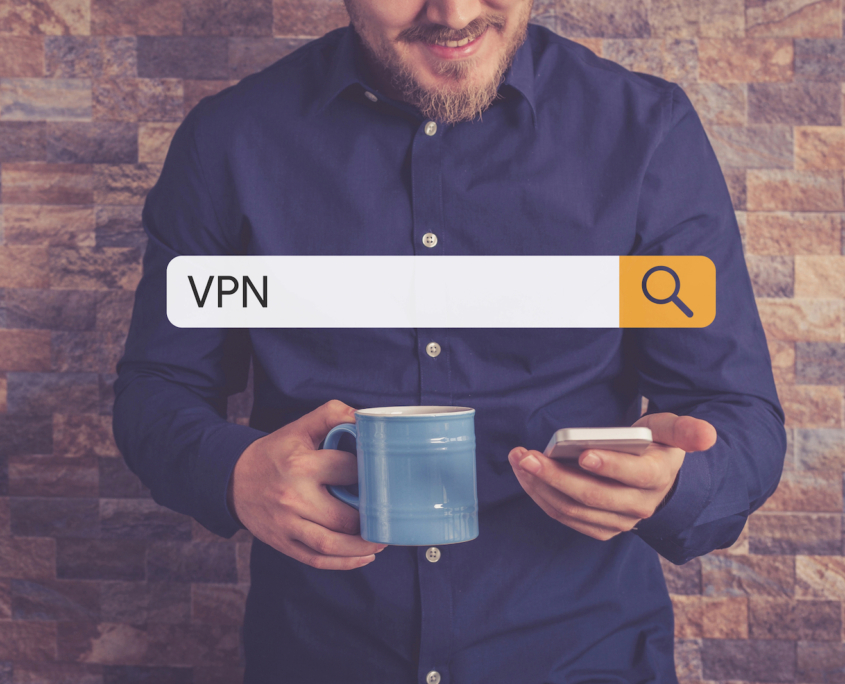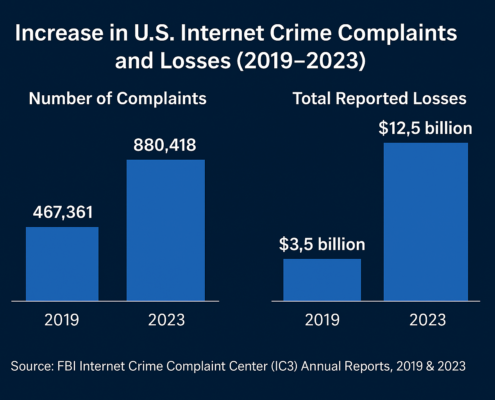Understanding Virtual Private Networks
27 September 2022 | Knowledge Hub
A VPN, or virtual private network, extends beyond being a mere consumer tool for everyday online security. Though frequently marketed to individuals, VPN technology has broad applications. Long before the surge in remote work brought about by COVID-19, corporations utilized VPNs to ensure secure access to digital resources from any location.
Activating a VPN establishes an encrypted connection—often termed a “tunnel”—between your device and a remote server managed by the VPN provider. This tunnel channels all your internet traffic through the server, which then interacts with the public internet. Incoming data follows the reverse path: from the internet, through the VPN server, via the encrypted tunnel, and back to your device.
How Does a Virtual Private Network (VPN) Work?
A VPN enhances a corporate network with encrypted connections over the Internet, ensuring privacy as traffic travels between devices and the network. This allows employees to securely connect to the corporate network from anywhere, including smartphones and tablets.
What is Secure Remote Access?
Secure remote access refers to the ability to safely connect to and interact with a network or system from a distant location.
Secure remote access enables users and devices to safely and securely connect to corporate networks from remote locations. Utilizing robust VPN technology, it authenticates users and devices and assesses device compliance—known as posture—before allowing remote connections.
Is VPN Traffic Encrypted?
Yes, VPN traffic is encrypted, ensuring your data remains secure and private. Leveraging advanced encryption protocols, VPNs safeguard against unauthorized access and cyber threats. This makes VPNs essential for maintaining confidentiality in an increasingly digital world. Stay informed and protect your online presence with the latest in VPN technology.
Can VPNs Ensure Your Online Anonymity?
Encrypting your traffic and routing it through a VPN server makes it harder—but not impossible—for observers to identify and track your online movements. While no VPN offers total anonymity, they significantly enhance your privacy.
For example, your internet service provider (ISP) likely has the most extensive insight into your online activity. The FTC report from 2021 details just how much ISPs know about your online behavior, and it’s substantial. Moreover, thanks to Congress, ISPs can sell anonymized customer data. If you’re uncomfortable with a company you’re already paying profiting from your data, or if you worry about ISPs amassing detailed logs of your activities, a VPN offers a solution. With a VPN, even your ISP can’t monitor your web traffic.
VPNs also complicate tracking efforts by advertisers and other entities. Typically, data is transmitted using your device’s IP address. An active VPN conceals your true IP address, showing only the VPN server’s IP. This obfuscation prevents snoops from using your real IP to track you.
However, VPNs do not render you fully anonymous online. Advertisers employ various techniques to identify and track you across the web. Trackers and cookies embedded in websites work to uniquely identify users and monitor their online movements.
Overall, while VPNs don’t provide complete anonymity, they are a powerful tool for enhancing your online privacy and security.
The Two Types of VPNs
Remote Access VPNs
A remote access VPN seamlessly connects external devices, such as laptops, tablets, and smartphones, to the corporate network. Advanced VPN technology now performs security checks on these endpoints, ensuring compliance before granting access. Imagine remote access as linking a device directly to a network.
Site-to-Site VPNs
A site-to-site VPN bridges the corporate office with branch offices over the Internet, perfect for scenarios where direct network connections are unfeasible due to distance. This VPN type utilizes dedicated hardware to establish and maintain secure connections. Think of site-to-site access as connecting one network to another.
Do VPNs Hide Your Torrenting and Online Activity?
When a VPN is active, all your traffic is encrypted, ensuring your ISP can’t monitor your online activity. However, while your ISP may not detect you’re torrenting content, they can observe significant bandwidth usage, potentially breaching your service terms. Additionally, pirating content may violate your VPN’s terms of service, so it’s crucial to review them carefully.
Can VPNs Bypass Censorship?
Using a VPN, you can connect to a server in another country, browsing the web as if you were physically there. This can bypass local content restrictions and censorship, making it one of the most commendable uses of a VPN. VPN providers often highlight their role in safeguarding internet freedom.
However, while VPNs should work in theory, they don’t render your traffic invisible. Observers can detect encrypted traffic, although they can’t see its contents. Nonetheless, encrypted traffic can still attract attention. Some VPNs offer modes to disguise VPN traffic as standard HTTPS traffic.
Stay informed and choose the right VPN to navigate censorship effectively.
Choosing a VPN Protocol
When selecting a VPN service, understanding the available protocols is crucial for ensuring optimal security and performance. Different VPN protocols offer various levels of encryption, speed, and compatibility with different devices and operating systems. Here are some of the most common VPN protocols you might encounter:
OpenVPN
OpenVPN is an open-source protocol known for its robust security and flexibility. It supports high-grade encryption standards and is compatible with a wide range of devices and platforms. OpenVPN can operate on both TCP and UDP ports, providing a balance between speed and reliability. Due to its strong security features and community support, OpenVPN is a popular choice for many VPN services.
L2TP/IPsec
Layer 2 Tunneling Protocol (L2TP) combined with Internet Protocol Security (IPsec) provides a high level of security. L2TP on its own doesn’t offer encryption, so it is often paired with IPsec to ensure data confidentiality and integrity. Although reliable, L2TP/IPsec can be slower than other protocols due to double encapsulation, which increases overhead.
IKEv2/IPsec
Internet Key Exchange version 2 (IKEv2), in conjunction with IPsec, is valued for its speed and stability, especially when switching networks (like moving from Wi-Fi to mobile data). IKEv2 is widely supported on mobile devices, making it a preferred choice for smartphone users. Its ability to automatically re-establish a connection when temporarily lost ensures a seamless user experience.
PPTP
Point-to-Point Tunneling Protocol (PPTP) is one of the oldest VPN protocols. While PPTP is easy to set up and provides fast connections, it is considered less secure than modern alternatives. With known vulnerabilities, PPTP is not recommended for use where security is a primary concern. However, its simplicity makes it suitable for scenarios where speed is a priority, and security is less critical.
WireGuard
WireGuard is a relatively new VPN protocol designed to be faster and more secure than existing protocols. It uses modern cryptographic principles and has a leaner code base, making it easier to audit and ensuring fewer vulnerabilities. Despite being new, WireGuard has quickly gained popularity for its performance and security benefits.
Understanding these protocols helps you make an informed decision when choosing a VPN service. Consider your specific needs—whether it’s top-tier security, optimal speed, or compatibility with various devices—when selecting the right protocol for your usage.
In Short
In conclusion, while VPNs can greatly enhance your online privacy and security, they also offer functional benefits like bypassing geographic restrictions and ensuring secure remote access. Understanding the types of VPNs, the protocols they use, and their capabilities with streaming services will help you make the most of your VPN experience.
◼️
Other Popular Blog Posts
Discover more from Brander Group
Subscribe to get the latest posts sent to your email.



